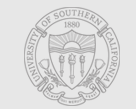A Textual Analysis of Ford's "Drive One" Ad Campaign: Introduction of the Domesticated Journalist
Ron Bishop
Abstract
A textual analysis was performed on eight advertisements created for the Ford Motor Company to run on television and on the Internet as part of a 2011 campaign. The spots revolve around the tagline “Drive One.” The first four spots feature Ford owners who were told they were about to attend market research focus groups, only to be thrust into fake press conferences with actors playing the assembled reporters. The second series of spots in the campaign promote the Ford Fusion Hybrid and revolve around a portable rolling tri-fold anchor desk contained in a large mirrored box. The journalist’s inclination to act in an adversarial fashion during press conferences clearly is missing. The ads encourage the conclusion that public relations professionals skillfully manage reporters through tactics like the press conference?one of the “socially organized distortions built into the structures and routines of news gathering” discussed by Schudson. The zeal to report from the scene of major events is further tempered by the perceived need to entertain the audience and by the financial precariousness of their field. Journalists lack the authority to ask the audience to consider “diverse possibilities” about the cars or consider contextual information about Ford. In short, they are portrayed as having been domesticated.
Full Text: PDF

